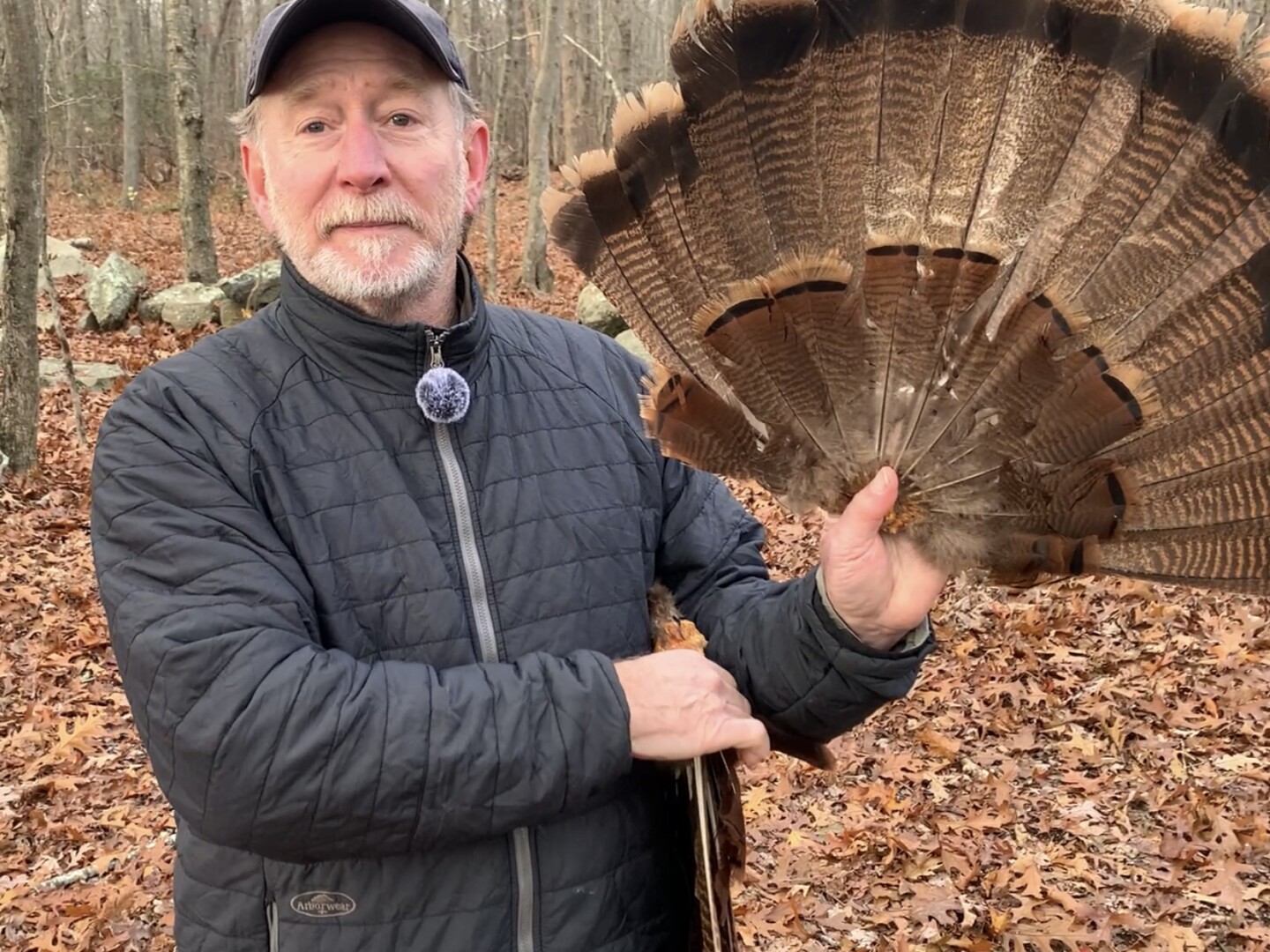Thanksgiving celebrates abundance, even in times of scarcity. It’s been that way since the very beginning.
Here in Rhode Island, one Thanksgiving staple is abundant right now: turkeys. Not the Butterball variety, wrapped in plastic, but actual wild birds.
Nobody knows exactly how many wild turkeys there are here. That’s one reason the University of Rhode Island is starting a comprehensive new statewide study of the species in conjunction with the state Department of Environmental Management.
“Everybody has stories of encountering turkeys, so it makes it kind of fun,” said lead researcher Scott McWilliams, professor of wildlife ecology at URI.
Sometimes wild turkeys turn up where you least expect them — like the Providence Athenaeum, the grand Greek Revival library at the heart of College Hill, right between Brown University and the Rhode Island School of Design.
For months, research librarian Stephanie Ovoian has had almost daily encounters with a turkey that seems to have decided the Athenaeum parking lot is part of his territory.
“I would describe him as doing his own thing,” she said. “Just kind of a turkey out there in the world, living his life, which just happens to be by the library.”
He’s not shy. In fact, he regularly stands his ground against pedestrians and cars that get too close.
These days, he likes to roost on top of the Washington Place building at RISD.
“The turkey population is booming right now,” said Sheida Solemani, founder of the nonprofit Congress of the Birds, a local rescue organization that nurses injured animals and, when possible, releases them back into the wild.
“Really they’re just all over the city,” said Solemani. “If you’ve been in Boston, they’re all over Harvard Square. Providence Place Mall often has turkeys in the parking garage. It’s an insanely large population.”
The wild thing is turkeys, which were abundant here during colonial times, were harvested to extinction by the end of the 19th Century. It wasn’t until 1980 that conservationists launched a major push to bring them back, starting with 29 turkeys captured in Vermont and released in Exeter.
“Then over the next about ten years, they brought more and more turkeys down, a total of about 140,” said URI’s McWilliams.
“They’ve sort of taken off!” he said.
Today, state officials receive regular sightings from all over the state. They hope the new study will give them a rough idea of the current population.
Starting in January, research teams will fan out across the state on the lookout for turkeys. When they find them, they’ll deploy something called a rocket net that will allow them to gather up whole gaggles in one go.
“We’ll then go retrieve them from the net, and we can then put a tracking device on the individuals to watch – to see how they move around the landscape,” said Dylan Bakner, a URI post-doc who will be leading the field teams.
Ultimately, the state Department of Environmental Management hopes to be able to make smart decisions about how best to manage the population, setting turkeys up for success.
Lizzi Bonczek, the DEM’s upland gamebird biologist, said, “We are going to be looking at when birds start gobbling and how that relates to when hens start nesting. So I think this will better inform our exact timing of hunting season.”
In case you are thinking this might be a good excuse for a DIY Thanksgiving, we’re obliged to inform you: Rhode Island’s Fall turkey hunting season ended on Halloween.
Bonczek says wild turkey wouldn’t taste quite the same as a grocery store Butterball.
“The birds will taste different depending on what they eat,” she said. “So a grain-fed turkey will taste different from a wild turkey.”
At the Providence Athenaeum, librarian Stephanie Ovoian says her close encounters with the College Hill turkey have given her new admiration for turkeys.
“When I bump into him out in the neighborhood, I always say hi,” she said.
But that doesn’t mean she has any plans to modify her Thanksgiving dinner menu.
“I will be eating turkey,” she whispered. “But don’t tell them!”
Still, she said, she’s thankful turkeys are doing so well here.










